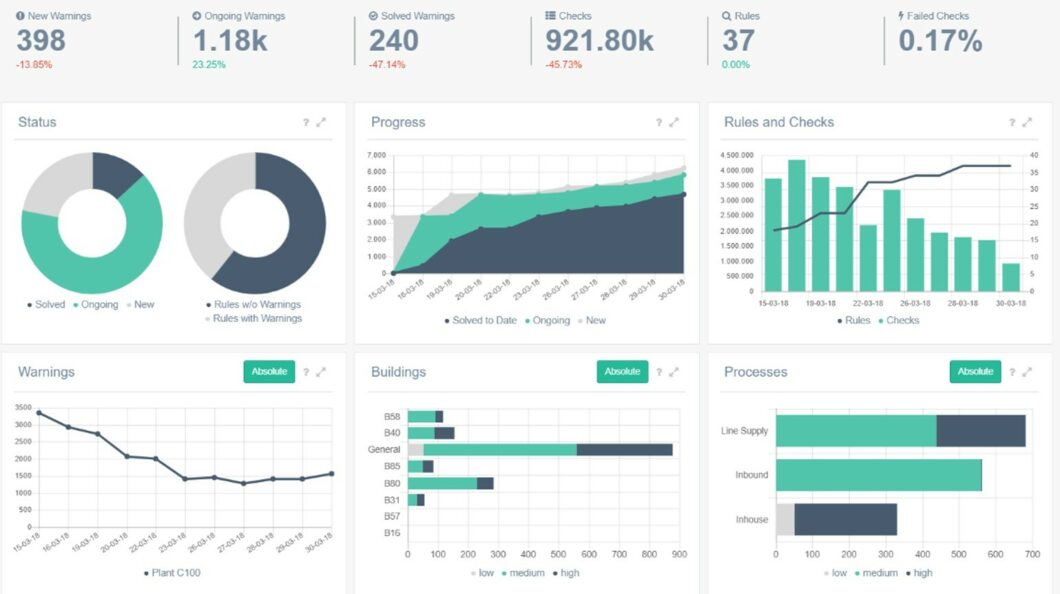

October, 2023
In an era where data is hailed as the "new oil," its quality acts as the refinery that makes this resource valuable. Enterprises have become increasingly reliant on vast volumes of data to inform business strategies, guide decision-making processes, and ensure customer satisfaction. However, as the volume and variety of data continue to explode, so does the complexity of keeping the quality of this data. This article delves into the vital need for scalable data quality management methods to meet the demands of the modern data landscape.
In the past decade, the volume of data generated and consumed by enterprises has skyrocketed. Today, businesses have access to an unprecedented amount of information. However, this influx of data is not solely an advantage; it exerts immense pressure on enterprises to ensure data quality, not just quantity. Incorrect or inconsistent data can severely distort business metrics and decision-making processes, making it crucial for companies to develop scalable approaches to keep data quality.
The implications of poor data quality are far-reaching and can be disastrous for enterprises. The costs manifest in various forms: from lost revenue and inefficiencies in operations to compliance risks and reputational damage. For example, Gartner reports that organizations believe poor data quality to handle an average of $15 million per year in losses. Whether it is through incorrect decision-making based on faulty data or non-compliance with regulations like GDPR (General Data Protection Regulation), the impact is tangible and often severe.
In earlier times, organizations relied heavily on manual checking and batch processing to keep data quality. These methods, although effective for the smaller data sets of the past, are grossly inadequate for managing the colossal volumes and complexities of modern data. They are not only resource-intensive but also prone to errors and inefficiencies. The sheer size of data today requires automated, real-time solutions to ensure its accuracy, consistency, and reliability.
Addressing the contemporary challenges in data quality requires scalability as a foundational part. Scalable data quality solutions are not only adaptable to the growing volume of data but are also versatile enough to manage the variety and velocity of data that enterprises encounter. The ability to scale ensures that as your data grows in complexity, your quality management initiatives evolve alongside it, preventing bottlenecks and system overloads.
The quality of your data plays a crucial role in determining the success of your digitalization endeavours. BearingPoint’s Data Quality Navigator (DQN) is a data-driven platform that transforms your data into trusted and reliable information. The DQN integrates various systems and utilizes a rule repository, with the embedded experience of our consultants from different industries to conduct regular data checks. This approach eliminates the need for manual scripts to manage data quality issues, which can be time-consuming and error prone. Instead, DQN uses out-of-the-box business rules to ensure high-quality data.
While DQN boasts a multitude of functionalities, its adaptability is particularly relevant for large enterprises through its Master Data Dashboard. This dashboard offers clarity and precise monitoring capabilities, pinpointing exactly where data quality needs enhancement in extensive organizational datasets. It supports all pivotal data tasks during your IT transformation (e.g S/4 HANA, Salesforce, IFS) – such as data cleansing, data harmonization, migration, and data governance. The system's rule-based methodology ensures flexibility, facilitating systematic checks even on intricate, industry-specific data structures. DQN can depict complex organizations. It continuously measures the data quality of relevant productive systems and automatically detects data issues. Responsible key-users are directly notified about data issues, and incidents can be solved before a negative business impact occurs (e.g., production stop or failed customer deliveries).

Examplary showcase of DQN: Data visualizations showing work distribution, team incidents, historical trends by location, and business scenario incidents across different sites.
A major automobile manufacturer stands as a testament to DQN's capability to handle scale and complexity. Given the company's intricate process flow and vast IT landscape encompassing a plethora of systems and data, maintaining quality became paramount. Before DQN, the intricacies of their data quality in their ERP system remained uncharted, posing potential risks. With the integration of DQN, the company now has the tools to measure, refine, and secure their expansive datasets, ensuring smooth operations in their multifaceted IT ecosystem
In conclusion, creating a scalable data quality management system involves more than just integrating technology; it requires a comprehensive approach that combines technology with human ability and operational processes. With BearingPoint’s Data Quality Navigator, you can unlock new possibilities and take control of your data quality with confidence.
BearingPoint recognizes the modern challenges faced by enterprises in keeping data quality and offers a comprehensive suite of scalable solutions. Our products are designed to adapt to the changing dynamics of your data landscape, enabled by AI-based algorithms for automated checks and cloud infrastructure for robust data management. By integrating technology and process management, BearingPoint's solutions supply an effective and scalable approach to data quality, meeting the needs of tomorrow's enterprises today.
The urgency to adopt scalable approaches to data quality management is more critical than ever, given the continuously evolving data landscape. Traditional methods are falling short, and the costs of poor data quality can be devastating. Scalable solutions not only meet the needs of today but are also adaptable to the unforeseen challenges of tomorrow. BearingPoint's suite of scalable data quality solutions supplies a robust, comprehensive approach to navigate these complexities effectively.